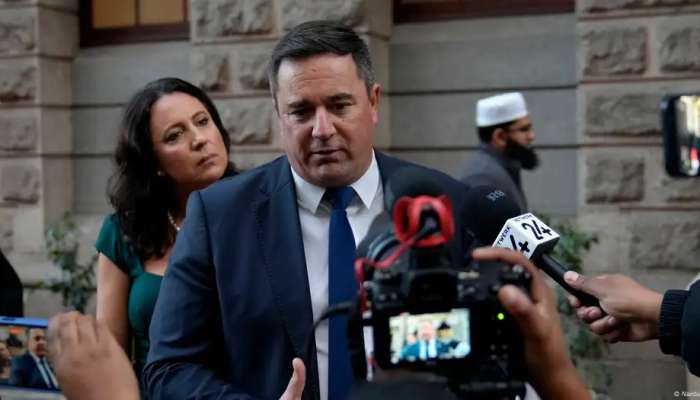
Pretoria: South Africa's fragile coalition government is under mounting strain, as the Democratic Alliance (DA), the second-largest party, abruptly withdrew from President Cyril Ramaphosa's "National Dialogue" initiative on Saturday.
DA leader John Steenhuisen also announced that his party would withhold support for the budgets of departments led by ministers accused of corruption.
The move follows Ramaphosa's dismissal of Deputy Trade Minister Andrew Whitfield, a DA member, earlier this week over an unauthorized trip to the United States. The DA and Ramaphosa's African National Congress (ANC) are the two largest parties in South Africa's coalition government.
Steenhuisen accuses Ramaphosa of 'double standards'
DA head Steenhuisen issued an ultimatum to the president, demanding the removal of ANC ministers and deputy ministers implicated in corruption within 48 hours and threatening "grave consequences" if the demands are not met.
That deadline passed on Saturday, with Steenhuisen accusing Ramaphosa of acting with "disrespect, arrogance, and double standards."
"The president's refusal to act against corruption within his own ranks risks confirming that his oft-repeated public commitment to clean governance is a sham," Steenhuisen said.
"Until he replaces words with action against corruption within his own ranks, the DA sees no further point in wasting our breath in endless talk shops with the ANC," he added.
South African news outlet Netwerk24 reported that Ramaphosa canceled his trip to a UN conference in Spain amid concerns the DA might exit the coalition.
But Steenhuisen confirmed the DA would remain in government and said the party had also decided, for now, not to table a motion of no confidence against Ramaphosa.
The coalition government was formed just over a year ago after the ANC lost its parliamentary majority for the first time since Nelson Mandela led it to power in 1994.
The ANC and DA remain ideologically opposed and have clashed repeatedly over the past year.
Their disagreement over this year's budget led to months of delays, and they have also sparred over policies aimed at addressing racial inequality, including the land expropriation act.
The sharp divisions now appear to threaten the future of the National Dialogue initiative, which was intended to tackle some of South Africa's most pressing challenges, including high unemployment and crime.